- Trending:
- Forgiveness
- |
- Resurrection
- |
- Joy
- |
- Afterlife
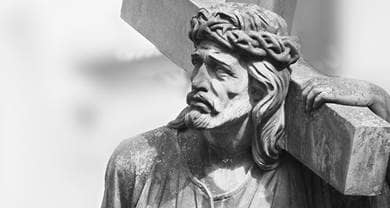
RELIGION LIBRARY
Christianity
Early Developments
Christianity began as a Jewish messianic movement in Jerusalem in the 1st century of the Common Era. Enjoying the advantages of travel and communications afforded by the relative calm of the Pax Romana, missionaries carried their message of resurrection and salvation throughout the Eastern Mediterranean, including Italy and Rome, the seat of the empire.
During these first few decades after the death of Jesus, Roman law regarded the new Christian movement as a Jewish sect. Thus the Christians, like the Jews, were exempt from the legal requirement to worship the Roman emperor as a god-like figure. To acknowledge the emperor's divinity, a participant offered a pinch of incense on an altar to the emperor. Most educated Romans viewed this as a merely symbolic act, but in the popular imagination this token ceremony was thought to appease the gods who were responsible for the empire's peace and prosperity. Both Jews and Christians considered this an act of idolatry.
As Gentiles increasingly filled the ranks of these early Christian communities, Christians as a group lost their legal status as Jews. Their refusal to offer incense invited accusations that they were atheists and unpatriotic. By refusing to honor the gods of Rome, Christians aroused fears that the gods would punish Rome. This led to suspicions, rumors, and waves of persecutions. By the start of the 2nd century, being a Christian was punishable by death.
Nevertheless, Christianity continued to spread and attract new converts. Christians were known for their hospitality and philanthropy. They shared their possessions and established networks of care for the poor and for widows and orphans. Unusual in Roman cities and towns, Christianity's communal life and social generosity drew attention and converts to the movement.
Christians were also known for their care of the sick, including plague victims, and their respect for the bodies of the dead. The ancient world had little in the way of medical knowledge and treatments. It was commonly believed that sickness was caused by evil spirits, or demons, so exorcisms were common. The Christian practice of "laying on of hands" was one such form of healing.
| Major Roman persecution of Christians | |
| Emperor | Reign |
| Domitian | 81-96 CE |
| Marcus Aurelius | 161-180 CE |
| Decius | 249-251 CE |
| Diocletian | 284-305 CE |
Christians suffered several waves of brutal persecution, among those the notorious persecutions of the Emperors Domitian (81-96), Marcus Aurelius (161-180), and Decius (249-251). Martyrs were held in especially high regard by the churches, and the New Testament's Book of Revelation, probably written in response to Domitian's persecution of Christians, promised special rewards for those who died for their faith.
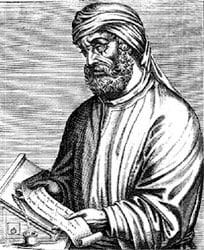 Early Church apologists, defenders of the faith, wrote extensively during these years. Justin addressed the validity of the Christian faith and its superiority to Greek pagan forms of worship. While he recognizes the contributions of Greek philosophy, he also argues for the superiority of Christian revelation and its mandates for human society. For these works, he was martyred in 165. Tertullian (c. 160) also contributed to the growth of Church doctrine and Christian practice. He addresses fundamental parts of Church experience, such as prayer and worship, and also challenged the growth of heresy. Athenagorus (late 2nd c.) had been a Greek philosopher before converting to Christianity. His works defended Christian practices to the Roman emperors. These writers and others sought to justify Christian claims to the Greek and Roman intellectual and cultural world.
Early Church apologists, defenders of the faith, wrote extensively during these years. Justin addressed the validity of the Christian faith and its superiority to Greek pagan forms of worship. While he recognizes the contributions of Greek philosophy, he also argues for the superiority of Christian revelation and its mandates for human society. For these works, he was martyred in 165. Tertullian (c. 160) also contributed to the growth of Church doctrine and Christian practice. He addresses fundamental parts of Church experience, such as prayer and worship, and also challenged the growth of heresy. Athenagorus (late 2nd c.) had been a Greek philosopher before converting to Christianity. His works defended Christian practices to the Roman emperors. These writers and others sought to justify Christian claims to the Greek and Roman intellectual and cultural world.
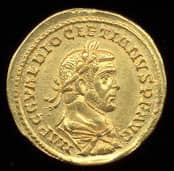 Emperor Diocletian (240-311), another emperor fiercely opposed to Christianity, ordered the destruction of all Church buildings and the confiscation of Christian books in 303. All Christians in the government and the army were dismissed, and the clergy were imprisoned. Many Christians were martyred, while others recanted and were accepted back into the faith after repenting.
Emperor Diocletian (240-311), another emperor fiercely opposed to Christianity, ordered the destruction of all Church buildings and the confiscation of Christian books in 303. All Christians in the government and the army were dismissed, and the clergy were imprisoned. Many Christians were martyred, while others recanted and were accepted back into the faith after repenting.
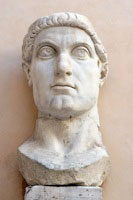 In 305, illness prompted Diocletian's sudden abdication, thereby triggering a civil war from which Emperor Constantine I emerged victorious. He declared himself a Christian in 312, and in 313 he issued the Edict of Milan, which established equality among all religions. This legalized Christian worship for the first time. In 324, Constantine defeated the last of his opponents and became sole ruler of the Roman Empire.
In 305, illness prompted Diocletian's sudden abdication, thereby triggering a civil war from which Emperor Constantine I emerged victorious. He declared himself a Christian in 312, and in 313 he issued the Edict of Milan, which established equality among all religions. This legalized Christian worship for the first time. In 324, Constantine defeated the last of his opponents and became sole ruler of the Roman Empire.
Constantine hoped that Christianity would cement the stability of the empire, so one of his first actions was to encourage the Church to end doctrinal debates, and clearly articulate Christian belief and identity. Doctrinal debates surrounded the incarnation, with contradictory interpretations and beliefs about the true nature of Jesus—human and/or divine—and his relationship with God. Questions had arisen about which Gospels and letters should be read in Church. There was even contention about how disputes should be resolved.
In 325, Constantine convened the First Ecumenical Council at Nicaea in Asia Minor, the first council to include bishops from both the eastern and western regions of the empire. The Council issued a creed that affirmed the doctrine of the Trinity. The Nicene Creed, which summarizes the core of Christian belief, is seen as authoritative by all main branches of Christianity.
| Nicene Creed |
| We believe in one God,
the Father, the Almighty, maker of heaven and earth, of all that is seen and unseen. We believe in one Lord, Jesus Christ, the only Son of God, eternally begotten of the Father, God from God, Light from Light, true God from true God, begotten, not made, one in Being with the Father. Through him all things were made. For us and for our salvation he came down from heaven: by the power of the Holy Spirit he was born of the Virgin Mary, and became man. For our sake he was crucified under Pontius Pilate, he suffered, died, and was buried. On the third day he rose again in fulfillment of the Scriptures; he ascended into heaven and is seated at the right hand of the Father. He will come again in glory to judge the living and the dead, and his kingdom will have no end. We believe in the Holy Spirit, the Lord, the giver of life, who proceeds from the Father [and the Son]. With the Father and the Son he is worshiped and glorified. He has spoken through the Prophets. We believe in one holy catholic and apostolic Church. We acknowledge one baptism for the forgiveness of sins. We look for the resurrection of the dead and the life of the world to come. Amen. |
Constantine moved the capital of the empire from Rome to Byzantium (modern-day Istanbul) in 330. He consecrated the town to Christ and renamed it Constantinople. Indirectly and unintentionally, this set the stage for a series of events that would ultimately lead to a split between the eastern and western churches. While the split was not complete until the 11th century, the two sides of "Christendom," East and West, began to develop along parallel paths.
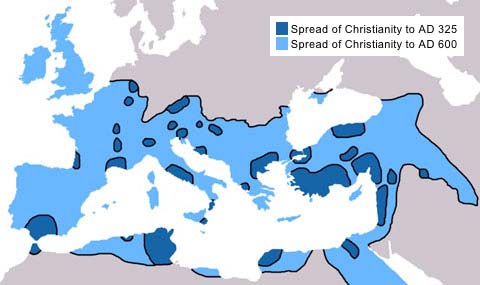
In 381, Emperor Theodosius I made Christianity the official religion of the Roman Empire. Christian communities could be found as far west as the British Isles, south into north Africa and Ethiopia, north to the Danube and into modern-day Romania, and east from modern-day Turkey into Armenia and perhaps even India. Although the disintegration of the western Roman Empire was only decades away, the Christian churches in the east and the west quickly assimilated the Empire's structures of organization and authority and experienced a period of profound growth and change.
Study Questions:
1. How did an understanding of idolatry affect early Christianity?
2. Why were Christians persecuted in the early 2nd and 3rd centuries?
3. Who was Constantine? How did he pave the way for the acceptance of Christianity?
4. Describe the role of politics in the success of Christianity.










